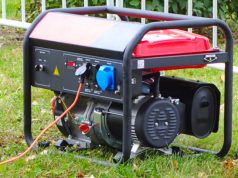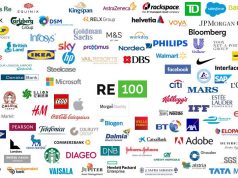Why Nigeria Makes Sense for RE 100 Companies (Part II)
This is the continuation of the two part series on Nigeria as a viable destination for RE 100 companies. More than half a billion people will be added to Africa’s urban population by 2040 with Nigeria accounting for a significant portion. Nigeria’s population of 200 Million is projected to double by 2050. Growth in urban population means corresponding growth in infrastructure demand. Nigeria is a key regional player in West Africa accounting for about half of West Africa’s population and one of the largest populations of youth in the world. With the falling cost of renewable technologies, RE 100 companies are in pole position to invest in Nigeria.
Some of the reasons are discussed below:
Renewable Energy Potential (REP)
Nigeria has tremendous renewable energy potential which should be an attraction to RE 100 companies. At the solar energy end, there is fairly distributed solar radiation averaging 19.8 MJm2/day and average sunshine hours of 6h/day. The assumed potential for concentrated solar power and photovoltaic generation is around 427,000 MW. According to estimates, the designation of only 5% of suitable land in central and northern Nigeria for solar thermal would provide a theoretical generation capacity of 42,700 MW. For Hydropower, Nigeria has a reported large hydropower potential of 11,250 MW and small hydropower of 3,500 MW. Wind potential is moderate with a reported average of 2-4m/s at 10m hub height. My piece examining the waste situation highlights the massive waste potential in Lagos State and the opportunity to convert same to renewable energy.
Governmental Policy Direction on Renewables
The regulatory framework for renewable energy in Nigeria has grown in the past few years. Nigeria is the first African country to issue green bonds. Presently, the green bonds have been issued twice with the number of subscribers in the second issue (2019) doubling that of the first issue (2017). Total value of subscriptions received was N32.93bn representing 220% of N15bn that was offered. The proceeds of the green bonds would be used to finance projects like off-grid solar and wind farms amongst others. There are solar deployment programmes like the Energizing Education Programmes and the Energizing Economies Inititiatives designed by federal agencies and supported by Development Finance Institutions (DFIs). The transportation sector has however not seen much of renewable policy action. This is certainly linked to the heavy reliance of PMS for cars and the recently revamped Natural Gas sector. However, this also presents an opportunity for pockets of investments in electric cars like the one discussed in my previous article. Investments in electric cars can go along with green real estate developments. The International Energy Agency (IEA) Africa Energy Outlook for 2019 noted Nigeria as one of four African countries with the best developed regulatory frameworks, where private mini-grid developers are also most active. The regulatory environment seems conducive enough for RE 100 companies.
Opportunity to drive RE 100 Membership for Nigerian Companies
While we see pockets of hybrid renewable energy projects in telecommunications, agriculture, banking, shopping malls, hotels e.tc, there is no well co-ordinated effort from the private sector aimed at emissions reduction. The role of sub-nationals, especially corporations in combating environmental issues like air pollution and climate change cannot be overemphasized. A lot of Nigerian businesses are powered by diesel/petrol propelled generators. Nigeria is reported to lead Africa in the total annual air pollution related deaths. This situation presents an opportunity for RE 100 companies to support federal initiatives aimed at decarbonizing the electricity sector. This support will hopefully translate to increased subnational interest and involvement in coordinated emissions reduction and RETs.
Framework for Collaborative Investments Strategies
There are worrying concerns about the cost of doing business in Nigeria. One of the recurring factors in discussions concerning doing business in Nigeria is the power problem. However, the falling cost of renewable technologies globally and the opportunity for RE 100 companies to collectively take on the power factor on a collaborative basis is quite fascinating. Commercial and industrial corporations are in a great position to scale the energy transition in Africa. Some Nigerian corporations are already integrating renewable energy into their operations through a hybrid system to drive down operation costs and go “green”. This hybrid solution usually combines solar, diesel and the grid. The contribution of renewable to the integrated mix is usually limited because of the lack of/insufficient storage solutions. Renewable energy with effective storage guarantees reliable access to power which is exactly what commercial and industrial investors need to survive. However, storage is expensive.
The solution to the high cost of storage is embedded in creating an RE 100 investment cluster to drive down storage and power costs for the individual companies. For example, RE 100 companies with complementary businesses interested in investing in Nigeria can come together in clusters to invest in shared green infrastructure. This will drive down battery storage costs as well as all other operating costs for the individual RE 100 companies. In my previous article on residential solar, I suggested that financing models tailored towards sharing of solar components by a group of users seems to be the current direction in global markets, and same can be replicated in Nigeria with minor adjustments. This also applies to industrial and commercial solar.
Conclusion
Companies in the commercial and industrial sector account for approximately two thirds of the world’s end-of-use of electricity. Switching this demand to renewables is transforming the global energy market and accelerating the transition to a clean economy. Today, a network of state and local governments, private firms and NGOs are actively addressing climate change and other environmental problems, with or without the help of their national governments. These networks are often referred to as sub-nationals and their approach to global climate governance has been variously referred to as transnational or polycentric. The energy transition can only be accelerated if the commercial and industrial corporations are actively and genuinely committed to the transition. Nigeria and the rest of Africa are in pole position to assist RE 100 companies meet their global RETs. This promises to produce a symbiotic outcome for RE 100 companies and Nigeria.
*Ayodele Babalola is qualified to practice law in Nigeria and has an LL.M (Master of Laws) with specialization in Environmental & Energy Law and Public Law from the University of California, Berkeley. He is the Founding Partner, AOB Willows LP where he leads the Dispute Resolution, Environment, Elections and Sports Practice




